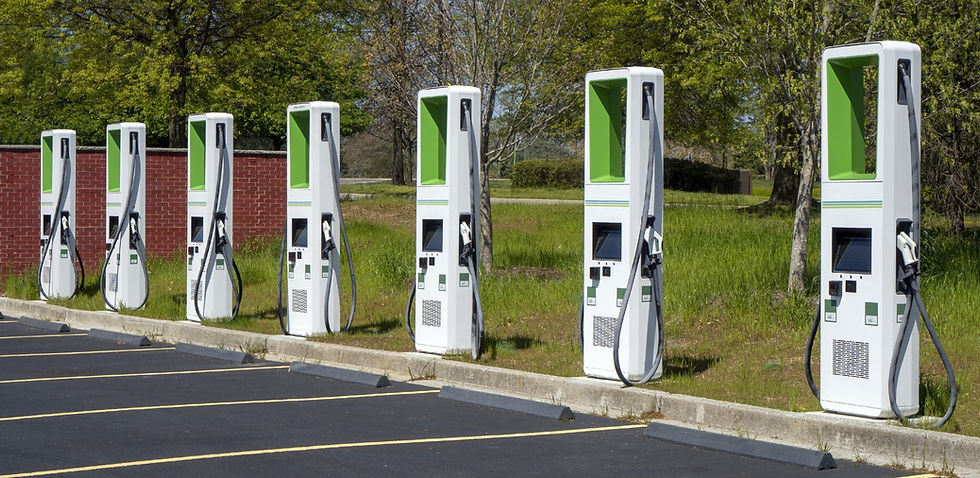green careers week 2025
- Nov 6, 2025
- 4 min read
Every November, Green Careers Week (3rd-8th November) highlights the growing range of “green” roles — jobs that help protect the environment, tackle climate change and support the UK’s journey to Net Zero. As an FE provider, it's a great opportunity to engage students aged 16–18 with vocational pathways into sustainable industries.
This year’s theme is “Go Green!”, a chance to explore how every subject area and vocational course can contribute to a greener economy.
why green careers week matters for FE students
The UK is aiming for Net Zero by 2050, so many new green jobs are being created — especially for technicians, engineers, environmental practitioners and sustainable construction experts.
FE colleges can equip young people with the hands-on skills that green industries need — through T Levels, BTECs, apprenticeships, and specialised vocational courses.
Engagement now helps students see how their studies link to real-world sustainability challenges.

examples of green careers & pathways
Here are roles and routes that FE students might follow into sustainable sectors:
Green career role | Why it’s growing | Possible pathway via FE |
Electric Vehicle (EV) Technician | As transport shifts away from fossil fuels, maintenance and repair skills for low-emission vehicles are in demand | Apprenticeship in Vehicle Maintenance & Repair, or BTEC Diploma in Automotive Engineering with EV-specialism |
Renewable Energy/Solar/Wind Technician | Renewable energy capacity is rising; installation, maintenance, site surveying skills are needed | Apprenticeship or T Level in Engineering & Manufacturing, or specialised course in Renewable Energy/Sustainable Engineering |
Sustainable Construction/Green Building Technician | New build and retrofit regulations (insulation, energy-efficiency) are driving demand for construction staff skilled in green methods | T Level or BTEC in Construction/Building Services; apprenticeships in sustainable construction or retrofit insulation |
Environmental Technician/Technologist | Organisations increasingly need monitoring, compliance, waste management and pollution-prevention support | BTEC or Diploma in Environmental Science/Sustainability; followed by apprenticeship or direct job role |
Land/Habitat/Conservation Manager or Operative | Restoration, biodiversity, ecological survey and countryside/parks management roles are expanding | Vocational courses in Countryside Management, Conservation & Ecology; progression via traineeships or apprenticeships with local conservation bodies |
Sustainability Practitioner | All sectors—from hospitality to manufacturing—need staff to advise on reducing carbon footprint, sustainable sourcing, and reporting | Combined study of business/management plus sustainability modules; possible Level 3 apprenticeships in sustainability/project management |
vocational routes via asphaleia
asphaleia training provides Functional Skills and employability programmes for 16-18 year-olds, enabling them to obtain essential maths and English qualifications that can then lead on to other FE courses and programmes or employment.
If you’re passionate about the environment and want to build a career that makes a difference, there are several vocational routes available at FE colleges to help you get there. Vocational learning is hands-on, practical, and focused on preparing you for the workplace — perfect for starting your journey into the growing green economy.
t levels
T Levels are two-year courses that combine classroom study with real work experience. You’ll spend 80% of your time learning in college and 20% on a meaningful industry placement with an employer. T Levels are designed with businesses, so you’ll gain the skills that are actually needed in the workplace.
If you’re interested in green careers, you might choose T Levels such as:
Design, Surveying and Planning for Construction – learn how to plan and manage environmentally sustainable building projects.
Engineering and Manufacturing – explore how modern technologies can make production more energy-efficient.
Science – study how scientific research contributes to protecting the environment and developing green technologies.
Maintenance, Installation and Repair for Engineering and Manufacturing – ideal for students who want to work with renewable energy systems or electric vehicles.
After completing a T Level, you can go straight into employment, start a higher apprenticeship, or progress to university.
apprenticeships
Apprenticeships allow you to earn while you learn. You’ll be employed full-time, gain valuable work experience, and study towards a nationally recognised qualification — all while getting paid.

Green apprenticeship roles are growing fast and include options such as:
Environmental Technician Apprentice – work with environmental teams to monitor pollution, manage waste, and support conservation projects.
Wind Turbine or Solar Energy Technician Apprentice – help install and maintain renewable energy systems.
Electric Vehicle Service Technician Apprentice – train to maintain and repair electric or hybrid cars.
Sustainability Practitioner Apprentice – support businesses to operate more responsibly and reduce their carbon footprint.
Apprenticeships are a great way to start a career straight after school, combining real experience with industry-recognised skills.
BTECs and diplomas
BTEC and Diploma courses focus on developing the practical skills and technical knowledge needed for specific careers. They are assessed through coursework and projects rather than exams, making them ideal for students who prefer applied learning.
At college, you could study subjects such as:
Environmental Sustainability – learn about climate change, renewable energy, and sustainable living.
Engineering – gain the skills to design and build technologies that support cleaner industries.
Construction and Building Services – understand how to create energy-efficient buildings and use eco-friendly materials.
Countryside Management or Horticulture – explore land management, biodiversity, and conservation practices.

BTEC and Diploma qualifications can lead directly to employment, apprenticeships, or further study at higher levels.
careers advice and enrichment
We have a Careers Advisor at asphaleia training who can support students in deciding pathways towards the careers they're interested in, or even help them decide what careers may suit their interests and skills.
We also have various careers-focused enrichment activities going on throughout the academic year, such as visiting speakers from different industries, and visits to workplaces.
our programmes
Find out more about what is on offer at asphaleia training by visiting our further education and training page.








